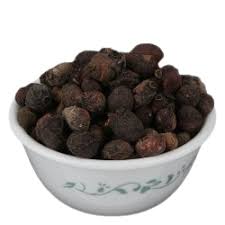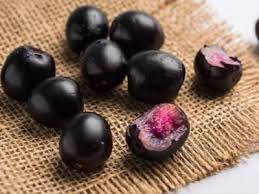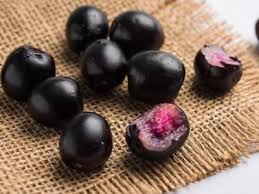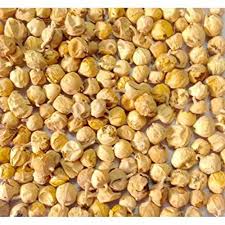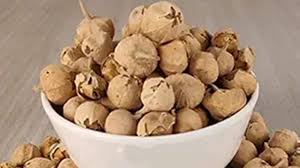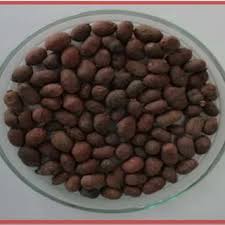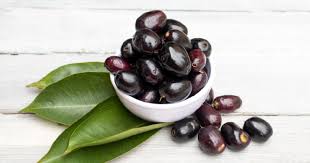
Jadi Buti for Controlling Diabetes & Regulating Sugar Levels
Diabetes is one of the most prevalent chronic conditions worldwide, with millions of people affected each year. Managing blood sugar levels is crucial for preventing complications such as heart disease, kidney damage, and nerve damage. While medication plays a significant role in controlling diabetes, Jadi Buti—a collection of traditional herbs used in Ayurvedic medicine—offers a natural, holistic approach to maintaining healthy blood sugar levels. These herbs, rich in bioactive compounds, provide effective support for regulating blood sugar, improving insulin sensitivity, and preventing the long-term effects of diabetes. In this article, we will explore the best Jadi Buti that can help control diabetes and support overall well-being.
Long Description:
- Understanding Diabetes and the Role of Jadi Buti:
Diabetes is a condition in which the body either fails to produce enough insulin (Type 1) or becomes resistant to the insulin it does produce (Type 2). Insulin is the hormone that helps regulate blood sugar levels by enabling cells to absorb glucose from the bloodstream. When insulin function is impaired, glucose levels remain high in the blood, leading to hyperglycemia and associated complications.
Ayurveda has long relied on the power of Jadi Buti—medicinal herbs with therapeutic properties—to maintain balance in the body. These herbs are rich in antioxidants, anti-inflammatory compounds, and other bioactive substances that help control blood sugar levels and improve insulin sensitivity. By incorporating Jadi Buti into your lifestyle, you can naturally support your body in managing diabetes, reducing inflammation, and improving overall health.
- Best Jadi Buti for Controlling Diabetes and Regulating Sugar Levels:
A. Bitter Gourd (Momordica charantia)
Bitter Gourd, or Karela, is a popular Ayurvedic remedy for managing diabetes. It contains compounds like charantin, polypeptide-p, and vicine that mimic the action of insulin and help lower blood sugar levels. Regular consumption of bitter gourd can improve glucose metabolism, regulate insulin production, and reduce the symptoms of diabetes. This bitter vegetable also contains antioxidants and anti-inflammatory properties, which help protect the body from the oxidative stress associated with high blood sugar levels.
B. Fenugreek (Trigonella foenum-graecum)
Fenugreek, or Methi, is another effective herb for controlling diabetes. It is rich in soluble fiber, which helps slow the absorption of carbohydrates and regulates blood sugar spikes after meals. Fenugreek seeds contain compounds like 4-hydroxyisoleucine, which improves insulin sensitivity and glucose uptake. Consuming fenugreek seeds daily in the form of powder, water, or tea can help stabilize blood sugar levels, making it a vital herb in managing diabetes.
C. Gymnema Sylvestre (Gurmar)
Gymnema Sylvestre, commonly known as Gurmar, has earned the nickname “sugar destroyer” because of its ability to reduce sugar cravings and regulate blood sugar levels. It contains compounds like gymnemic acids that inhibit the absorption of glucose in the intestines and help maintain healthy blood sugar levels. Gymnema also promotes the regeneration of pancreatic cells that produce insulin, improving insulin secretion and sensitivity. Regular use of this herb can be especially beneficial for those with Type 2 diabetes.
D. Cinnamon (Cinnamomum verum)
Cinnamon is not only a flavorful spice but also an excellent herb for controlling diabetes. It contains compounds like cinnamaldehyde that increase insulin sensitivity and help regulate blood sugar levels. Cinnamon can reduce insulin resistance, a major factor in Type 2 diabetes, and support better glucose metabolism. Additionally, its antioxidant properties help reduce the oxidative stress caused by elevated blood sugar levels. Adding cinnamon to your diet can help manage blood sugar while offering numerous other health benefits.
E. Turmeric (Curcuma longa)
Turmeric, the golden-yellow spice, is a powerful anti-inflammatory and antioxidant herb used in Ayurvedic medicine to manage diabetes. The active compound in turmeric, curcumin, has been shown to improve insulin sensitivity, reduce inflammation, and protect against diabetic complications. Curcumin also helps reduce blood sugar levels and prevents the damage caused by high glucose. Incorporating turmeric into your diet, either through food or supplements, can play a key role in managing diabetes.
F. Jamun (Syzygium cumini)
Jamun, or Indian blackberry, is another highly effective Jadi Buti for controlling blood sugar levels. The fruit contains anthocyanins, ellagic acid, and other phytochemicals that have been shown to reduce blood sugar levels and improve insulin function. Jamun seeds are particularly useful for regulating blood sugar levels and preventing complications related to diabetes. Consuming Jamun fruit or powder made from its seeds can help manage glucose levels naturally and promote overall health.
G. Aloe Vera (Aloe barbadensis miller)
Aloe Vera is known for its soothing and healing properties, but it also plays an important role in managing diabetes. Aloe Vera helps improve insulin sensitivity and reduces blood sugar levels by promoting better glucose absorption. Its anti-inflammatory properties help reduce the risk of complications associated with high blood sugar, such as nerve damage and heart disease. Aloe Vera juice or gel can be consumed regularly to support healthy blood sugar regulation.
- How Jadi Buti Helps Control Diabetes:
A. Improving Insulin Sensitivity:
Several Jadi Buti help improve insulin sensitivity, allowing the body to use insulin more efficiently. Herbs like Gymnema Sylvestre, Fenugreek, and Cinnamon promote better glucose uptake by the cells, reducing insulin resistance and improving overall blood sugar regulation.
B. Reducing Inflammation:
Chronic inflammation is a significant contributor to insulin resistance and the development of Type 2 diabetes. Many Jadi Buti, such as Turmeric and Bitter Gourd, have potent anti-inflammatory properties that help reduce inflammation in the body. By reducing inflammation, these herbs support better blood sugar control and prevent the complications associated with diabetes.
C. Regulating Glucose Absorption:
Herbs like Fenugreek and Gymnema Sylvestre slow down the absorption of glucose from the intestines, preventing spikes in blood sugar after meals. This helps maintain steady blood sugar levels throughout the day, making it easier to manage diabetes.
D. Supporting Pancreatic Health:
Certain herbs like Gymnema Sylvestre and Bitter Gourd stimulate the pancreas to produce more insulin, which is vital for regulating blood sugar levels. By improving pancreatic function, these herbs help maintain healthy blood sugar levels and prevent diabetes-related complications.
- How to Use Jadi Buti for Diabetes Management:
There are various ways to incorporate Jadi Buti into your daily routine to control diabetes and regulate blood sugar levels:
Herbal Teas: Brew a mixture of Fenugreek, Cinnamon, and Gymnema into a soothing tea. Drinking this regularly can help stabilize blood sugar levels.
Powders and Supplements: Many Jadi Buti are available in powder form, such as Jamun powder or Bitter Gourd powder, which can be added to water, smoothies, or juices.
Fresh Juices: Aloe Vera and Jamun juice are excellent natural drinks for controlling blood sugar levels.
Capsules: Herbal supplements are an easy and convenient way to take Jadi Buti daily. Opt for high-quality, organic capsules containing Gymnema or Turmeric for maximum benefits.
- Additional Tips for Managing Diabetes Naturally:
Maintain a Healthy Diet: Focus on a balanced, low-glycemic diet rich in fiber, vegetables, and whole grains to support blood sugar control.
Exercise Regularly: Physical activity helps improve insulin sensitivity and glucose metabolism.
Stay Hydrated: Drinking plenty of water throughout the day can help flush out excess glucose and support kidney health.
Monitor Your Blood Sugar Levels: Regularly monitor your blood sugar to keep track of how well your diabetes is being managed.


